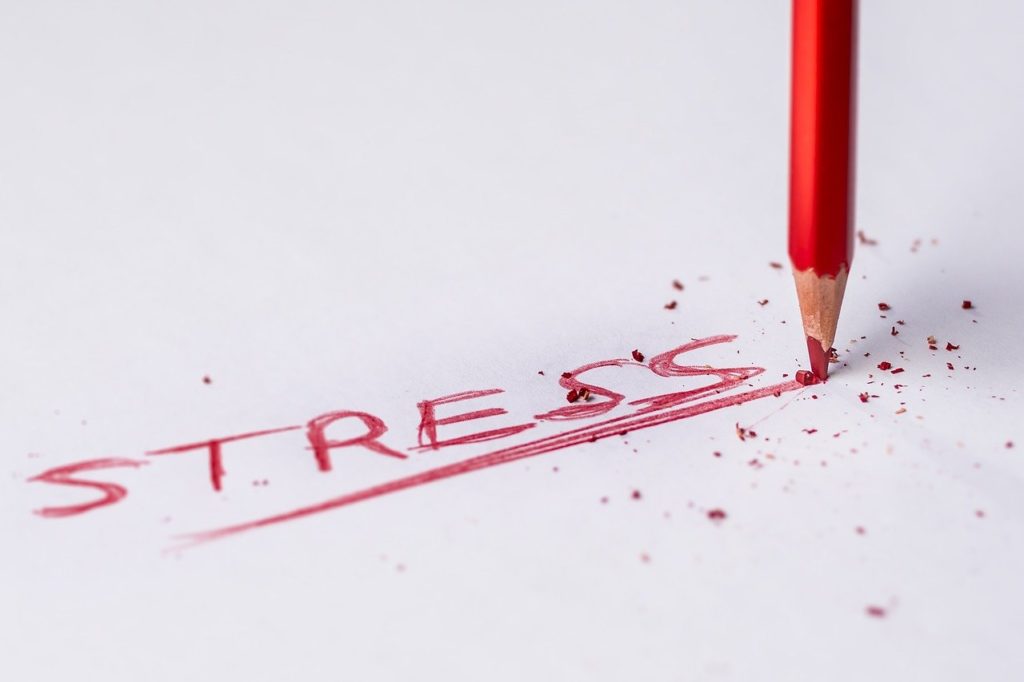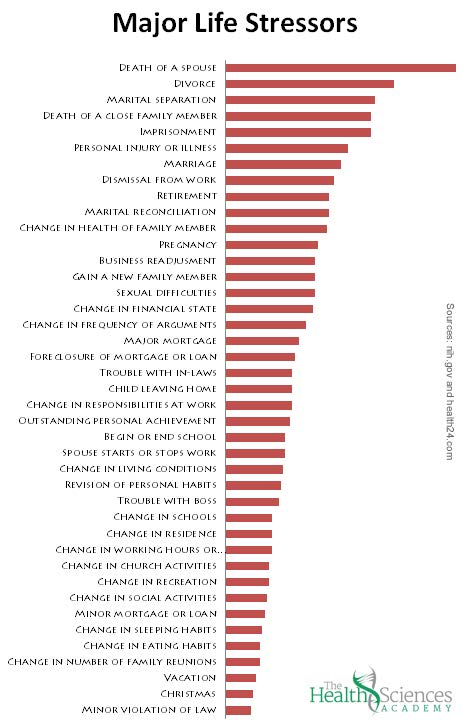
Not all stress is “bad”, in fact normal stress allows us to survive and thrive! It’s when stress becomes chronic that we really run into unnecessary responses which become harmful – yes, I’m talking excessive or chronic worry, tension, panic, exhaustion, anger, sadness, anxiety, fear, and/or burnout. But did you know that chronic stress can also manifest as gut disorder, weak nails, hair fallout, changes in weight, jaw pain, shoulder tension, cold sores, and headaches?
Stress wreaks havoc, defined as negative reactions and automatic responses that overwhelm us and others around us.
Major Life Stressors
What are the things that Americans say are their top stressors (they could choose multiple stressors)?

The higher the number of stressors, the more signs you have AND the higher your risk of chronic illness.
Signs of Chronic Stress
One can become more irritable, moody, angry, aggressive and wound up with a short tolerance. One can feel overburdened, anxious, nervous, worried, afraid or wired. Gut issues can look like diarrhea, constipation, excess gas & bloating, aches, ulcers, & decreased nutrient absorption. Stress wears out & shortens telomeres, which are the caps on the ends of chromosomes in your DNA. They usually affect how quickly your cells age… and in turn how you age as a whole. So this means chronic stress ages you. Shorter telomeres are also associated with cancers, brain stroke, vascular dementia, cardiovascular disease, obesity, osteoporosis, and diabetes.
The funny thing about these signs is they can appear in small doses and gradually increase so you don’t even realize you are stressed… until someone asks you to gauge it.
What to do
Luckily there are MANY ways to cope with chronic stress. Ideally you can identify and lessen the triggers or causes so you will permanently decrease the stress you face. When that is not possible, we need more relaxation time – which is time that you are not stressed. Think of activities you can do to escape your life’s stressors: Reading, Sleeping, Talking things out, Physical Movement, Yoga, Meditation, Coloring, Prayer, Self-Care, Journal Writing, etc…. The roles of these activities cannot be underestimated in terms of grounding, calming, and allowing mental rest. In addition to these self-activities, social support should not be underestimated also. Surrounding oneself with supporting friends changes overall mood which diminishes stress. Cleaner eating may help prevent stress from unhealthy sugars and artificial additives.
If you feel like you’d like more ideas or support with managing the stress in your life, contact your local health coach who can explore dietary and lifestyle changes which may help you with your current stress management.


